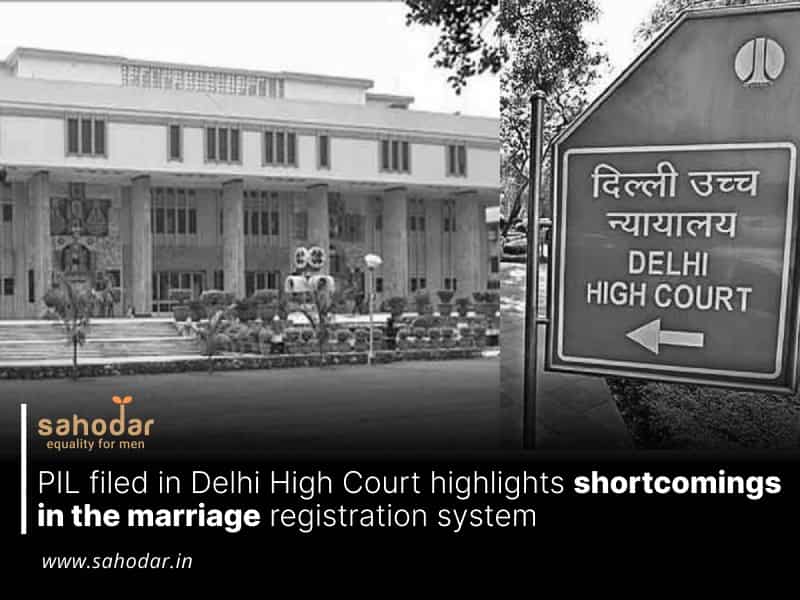The Court observed that the mechanism for registration of marriages in Delhi was inadequate and not in conformity with a 2006 judgment of the Supreme Court.
The Delhi High Court on Wednesday sought responses from the Central and Delhi governments regarding a public interest litigation (PIL) that raised concerns over the lack of a sufficient statutory framework for marriage registration system in the national capital.
Petitioner Akash Goel challenged the constitutional validity of the Delhi (Compulsory Registration of Marriage) Order, 2014, which was enacted following the Supreme Court’s ruling in Seema v. Ashwani Kumar, mandating compulsory marriage registration in Delhi.
The Bench, comprising Chief Justice Devendra Kumar Upadhyaya and Justice Tushar Rao Gedela, noted that the existing marriage registration mechanism was inadequate and did not align with the Supreme Court’s judgment.
“In the absence of a legislation the mechanism available for registration of marriages is not only inadequate and causing various difficulties to the persons seeking registration, the same is not fulfilling compulsory registration of marriage as set out by the Supreme Court,” the Court stated.
Accordingly, the Court issued notices to the Central and Delhi governments and instructed them to ensure adherence to the Supreme Court’s directives.
“We call the concerned Ministry of the Centre and Delhi Government to look into the matter and then take appropriate steps in law and for ensuring the directions of Supreme Court. We grant 3 months time to the respondents to give its response,” the Court directed.
However, the Court noted that the petitioner was essentially requesting it to legislate, which was beyond its jurisdiction.
“You are asking us to legislate which cannot be done. The difficulty is that we do not have a new enactment as was desired by the Supreme Court as per its 2006 judgment. The Rules framed by the State Government is in pursuance of the directions in the Supreme Court order. They are only executive rules, violation thereof I don’t know the consequence. There has to be an enactment. So we are issuing notice,” the Court stated.
The petitioner argued that the shortcomings in the Delhi government’s rules were impacting women’s rights.
“The non-registration of marriages in India is leading to violation of the women rights as guaranteed under Articles 14 and 21 of Constitution of India. It is also submitted that shockingly low number of registration of marriages in Delhi is due to cumbersome procedures contained in clause 4 (d) and (e) of the Delhi (Compulsory Registration of Marriage) Order 2014,” the petition stated.
The PIL also pointed out the Delhi government’s failure to incorporate digital technology for an efficient marriage certificate issuance mechanism.
The Court specifically criticized the lack of legislation and a centralized database for marriage registrations.
“The Court has drawn your attention to a problem being faced by the citizens. We don’t even have the All India Database. That’s the need of the hour. You have to respond to the need of the people by making a simple enactment and putting in place a machinery for registration, permitting smooth registration of marriage. He is asking that you please permit me to apply for registration online. Why can’t you do this? This should not normally come to the Court, this is for you,” the Chief Justice stated.
The Court also observed that the petitioner had engaged with the authorities before filing the petition.

